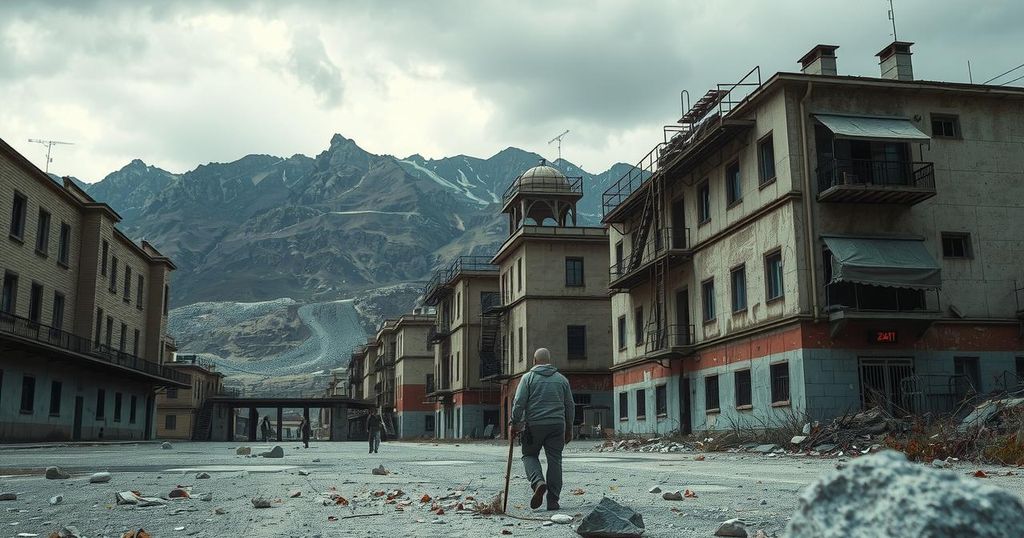Tensions Escalate in DR Congo: M23 Rebels Capture Goma Amid Humanitarian Crisis

Violence has escalated in the DRC as M23 rebels claim control over Goma, leading to a humanitarian crisis with thousands fleeing. The Congolese government accuses Rwanda of supporting M23, prompting the severance of diplomatic ties. The conflict is rooted in historical militia violence and competition for mineral resources, complicating peace efforts amid rising regional tensions.
A rebel coalition in the Democratic Republic of Congo (DRC) has claimed control of Goma, the largest city in the mineral-rich eastern region, after overcoming resistance from government forces aided by regional and UN military support. The Alliance Fleuve Congo (AFC), which comprises the M23 armed group, continues to expand its territorial influence, exacerbating an ongoing humanitarian crisis in the area. M23 has been previously sanctioned by the United States and the United Nations due to its violent actions.
Reports indicate a significant loss of life among peacekeepers and increasing civilian casualties, with hospitals in Goma overwhelmed due to injuries sustained in the fighting. The escalating conflict has forced thousands to flee, while foreign embassies in the national capital have become sites of protests amid rising tensions between the DRC and neighboring Rwanda. The Congolese government has cut diplomatic relations with Rwanda, blaming it for providing support to the rebels.
Historically, eastern DRC has suffered from violent militia conflicts, with M23 asserting it defends Rwandophone communities. Recent developments show M23 gaining control over vital mineral resources, raising concerns over the implications of their military advancements for both local populations and international markets. M23 has consistently denied engaging in any unlawful activities in the mineral-rich regions they occupy.
Goma’s strategic significance is underscored by its size and location, with approximately two million residents and vital links to surrounding regions. Nevertheless, M23’s claims of liberation have been marred by allegations of human rights abuses and the displacement of over 400,000 people this year alone. As humanitarian situations worsen, aid organizations are struggling to meet urgent local needs.
Rwanda’s involvement has intensified scrutiny, with reports suggesting Rwandan troops operate alongside M23. The situation is further complicated by accusations of past collaborations involving the DRC military and Hutu militias, reflecting long-standing regional animosities anchored in historical conflicts. Leaders in the region are expected to meet imminently to address the crisis, yet concerns remain regarding the effectiveness of prior peace interventions.
The ongoing conflict in the DRC has its roots in decades of militia violence, fueled by competition for vast mineral resources crucial to global markets. The M23 armed group, active since 2012, has revived its rebellion amidst claims of representing minority communities, yet it has been linked to serious human rights violations. The geopolitical dynamics involving Rwanda add complexity, as each nation accuses the other of instigating violence while the humanitarian situation for local citizens continuously deteriorates. Goma, a central point in this conflict, serves as a significant location for both military and humanitarian operations.
The situation in the Democratic Republic of Congo demonstrates the intricate relationship between natural resource exploitation, regional security, and humanitarian crises. The recent capture of Goma by M23 forces marks a pivotal moment potentially heightening tensions not only within the DRC but also with neighboring Rwanda. As the dynamics evolve, immediate attention is required to address the escalating humanitarian needs of the local populations and to promote a sustainable path toward peace in the region.
Original Source: www.cnn.com








